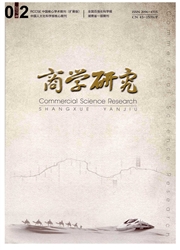

 中文摘要:
中文摘要:
本文旨在研究电子政务是否及怎样作用于信息时代建立高效、公开、正义、廉洁服务型政府的机制。以公众和公务员为研究视角,综合电子政务的内部与外部绩效,构建以顾客满意度、电子政务应用实效、可持续保障机制、基础设施完备度等为指标体系的电子政务成效层次结构模型,并以长沙、株洲和郴州市政府的调查数据进行实证研究,揭示电子政务的成效。结果表明:电子政务成效总体属于中等水平,电子政务的功能性应用处于建设性阶段,对政务信息共享和电子化有较好的促进作用,但电子政务提高政务的执行效率有限。提出了各级政府应加大电子政务的功能性应用建设力度,协同创新政务管理策略,以此提高政务执行效率,实现服务型政府。
 英文摘要:
英文摘要:
This paper explores whether and how E-government acts on the mechanism of the efficiency, fairness and justice,probity of service-oriented government in the era of information. From two perspectives on the public and civil servant, a hierarchical structure assessment module is built on the internal and external performance of e-government. It consists of several indicators such as customer satisfaction, actual effect of e-government, sustainable security mechanism, and completeness of infrastructure. Based on the survey data of Changsha, Zhuzhou and Chenshou local governments, an empirical research on the effect of e-government is conducted. The results show that the effect of e-government in these regions is in the medium level, the functional application of egovernment is under construction, and e-government has a limited ability to promote government effectiveness of enforcement even though it improves the sharing of information and electronic. So that, we suggest that governments at all levels should strengthen the construction of functional applications of e-government, adopt the collaborative innovation management strategy, to improve administrative efficiency and to build service-oriented government.
 同期刊论文项目
同期刊论文项目
 同项目期刊论文
同项目期刊论文
 期刊信息
期刊信息
